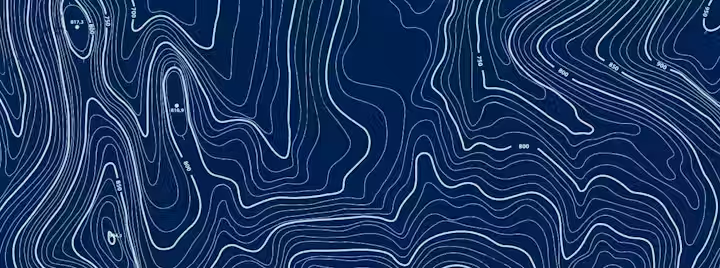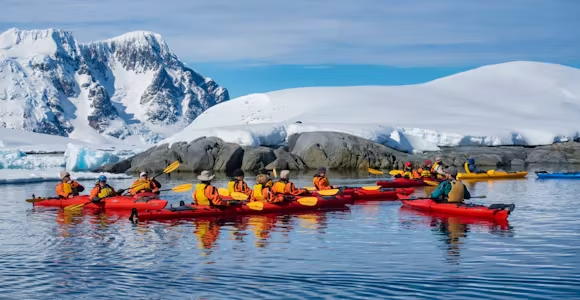
Antarctic Adventure Activities
Picture a humpback whale gliding past your kayak or sleeping out in the pristine snow of a polar campsite. An adventure activity can take your Antarctic cruise to the next level.
Discover MoreBy tracking individual whales throughout the world’s oceans thanks to their unique tail markings, the Happywhale project study is expanding our scientific knowledge of their behaviour and distribution.
Passengers on expedition cruise ships are encouraged to upload photos of whale sightings to the Happywhale website, which is used by many cetacean researchers. With each sighting tagged, it's even possible to 'follow' the whales you spot as they migrate throughout the year.
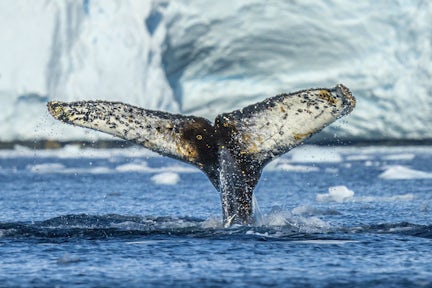
Melted glacial water can influence and change the population of phytoplankton along the Antarctic Peninsula by affecting the salinity of its waters. This citizen science project, run by the Scripps Institution of Oceanography in University of California (San Diego), is aimed at understanding what impact this might have on the polar ecosystem.
The Fjord Phyto project involves collect phytoplankton as you visit various location along the Antarctic Peninsula for laboratory analysis.
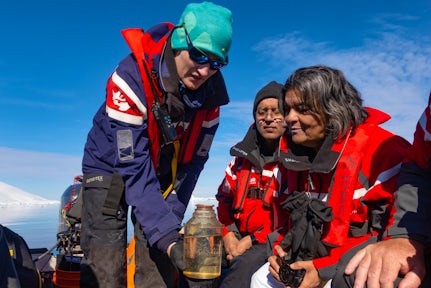
Working in conjunction with the Cornell Lab of Ornithology, this citizen science project involves conducting bird surveys at sea, helping scientists to understand large-scale seabird distribution patterns and habitat usage in the Southern Ocean.
Often a favourite of polar travellers, conducting these surveys means working in small groups with a naturalist guide, and being out on deck with your binoculars – a great way to spend time on the Drake Passage to and from the Antarctic Peninsula.
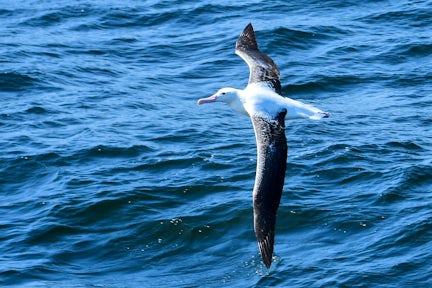
Clouds affect how much sunlight is being absorbed by the earth and how much heat is escaping back into space.
This citizen science project run by the NASA Langley Research Centre involves record cloud cover timed to weather satellite fly-overs, to better train them by marrying up ground observations with remote sensing, in a part of the globe where data is hard to come by. In doing so, the satellites help scientists produce better climate models.
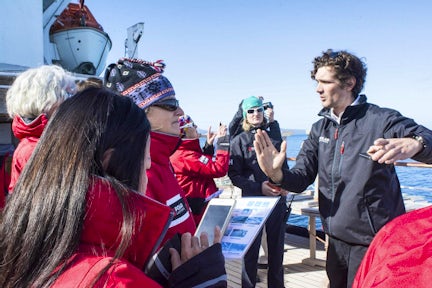
Data collected by HappyWhale led to the creation of maximum cruising speed limit for ships around the Antarctic Peninsula, to reduce the chance of accidental ship strikes on whales: a direct conservation outcome of citizen science.
This study helps scientists understand how the distribution, composition and abundance of phytoplankton are altering as the oceans are affected by climate change.
Participants record the depth when a Secchi Disk disappears from sight when lowered vertically into the seawater from a stationary boat – a recognised measure of water clarity and phytoplankton density in a part of the world where melting glaciers affects the salinity of the sea and the food chains that depend on it.
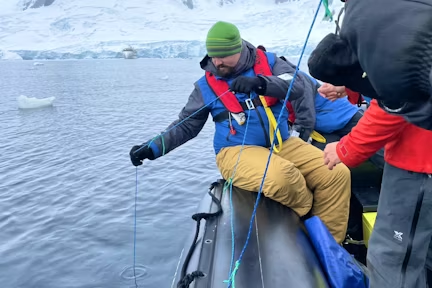
Seaweed can be a great indicator of the health of the sea and coastline, but little is currently understood about the waters around South Georgia. This project, created by the London Natural History Museum aims to address that.
By logging seaweed rafts at sea, observations of native and possible invasive species on the coast, and bleaching events potentially caused by warming seas, citizen scientists contribute to baseline data in an area that few scientists have yet been able to survey.
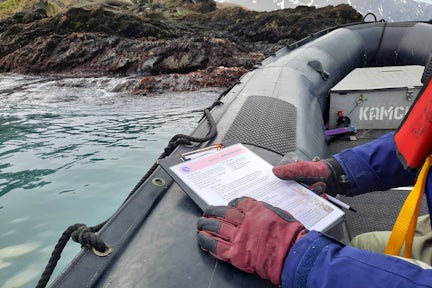
Want to get involved? Speak to our Antarctic specialists about which voyages will give you the most opportunities to contribute to citizen science projects.
The Polar Citizen Science Collective facilitates ship-based citizen science programmes in the polar regions. It was founded in 2015 by five expedition guides including friends-of-Swoop Bob Gilmore, who helps coordinate programs on expedition ships, and Ted Cheeseman, founder of happywhale.com. Together, they saw an opportunity to involve guests in scientific research.
The collective argue that their education programs help create ambassadors, 'committed, enthusiastic and action-oriented travellers who will return home to champion for the protection of the polar regions'.
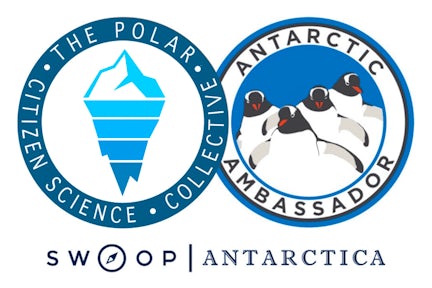
The Antarctic is a critical part of the Earth’s climate system and a sensitive barometer of climate change. Understanding how the polar regions are responding to climate change is essential for monitoring change and predicting future changes.
Many scientific studies tracking trends rely on ‘big data’, which is exactly what citizen science can supply - the global eBird project, for example, run by the Cornell University Ornithology Lab, received over 3 million data sets from citizen scientists in 2015. By giving policy makers and politicians accurate information, these scientific studies can inform conservation efforts and policies.
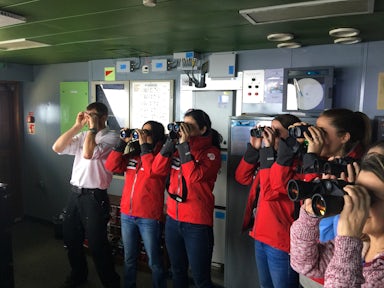
Wildlife watching for the Citizen Science program
Price Match Promise - We’ll match any price you find elsewhere for the same trip

Picture a humpback whale gliding past your kayak or sleeping out in the pristine snow of a polar campsite. An adventure activity can take your Antarctic cruise to the next level.
Discover More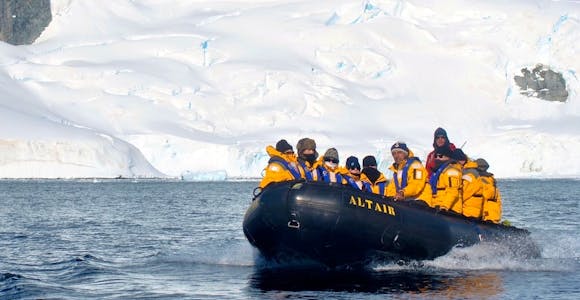
Zodiac cruises are at the heart of every polar trip, allowing you to experience Antarctica up close, from cruising through the ice to close wildlife encounters.
Discover More
Active learning is at the heart of the Antarctic expedition cruise experience, with the chance to closely engage with the science and spectacle of the White Continent.
Discover More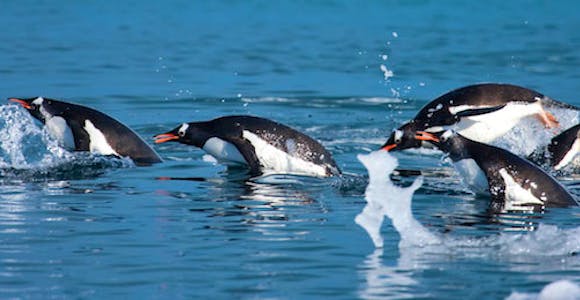
Antarctica is a photography paradise. Sail with other keen photographers and a team of on-board professionals to get the most out of your cruise.
Discover MoreNot all vessels have dedicated citizen science programmes, but many do. If this is important to you, let your Swoop Polar Expert know and they can help you choose an expedition that speaks to your interests.
The data gathered in citizen science projects contributes to real scientific research. Collectively, our team at Swoop has taken part in every current programme and spoken directly with researchers to follow the entire process, from field to lab. Learn about the citizen science programmes we’ve been involved in on our blog.
Even if your expedition vessel doesn’t run an official citizen science programme, you can still take part.
Try contributing to projects like Happywhale, where you can log whale sightings and help track individual whales worldwide, or eBird, which allows you to record bird observations and support global research. Through GLOBE Clouds you can take part in cloud surveys to help NASA study the atmosphere.
Swoop is a proud financial supporter of the Polar Citizen Science Collective, helping to fund research and expand citizen science opportunities in Antarctica. Learn more about our commitment on the Swoop Conservation Fund page.
No, all the necessary equipment is provided on board – just bring your curiosity and enthusiasm!
We'll spend some time listening to your aspirations, then discuss the kind of experience that might suit you.
Next we'll discuss the options, shortlist the best trips for you and present you our impartial recommendations.
We'll place a 24 hour hold on your preferred option - without obligation - whilst we talk through the details.
